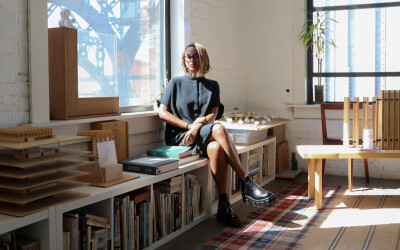Meet Laurie Adams
Renowned writer and activist Alice Walker once said, “Activism is the rent I pay for living on this planet.” I have always identified with this quote and seen myself as an activist and agent of change. Years ago, when I was a student at Dartmouth College, I learned about apartheid in South Africa and felt very strongly that I couldn’t and shouldn’t remain silent. Along with other students, I participated in protests and organized to negotiate with stakeholders at our campus to divest from South Africa. It wasn’t easy but we succeeded. It energized me and made me realize that I had the power to bring change and that collective action can be transformative.
Soon, I found myself in South Africa working with U.S. and South African organizations dedicated to equality. Over the years, I also got the chance to work with global organizations on a wide range of issues from poverty and economic inequality to racism and homophobia all around Africa. I had the great privilege of spending months discussing gender roles with nomadic people in places like Kenya and Mali, being at the bargaining table with ministers and even presidents deciding trade rules and being a first responder saving lives from conflict and natural disasters from Liberia to Angola. I learned that what gave me a sense of belonging to a place was the work I was doing and the impact I was making. It made me feel a deep kinship with people everywhere and feel responsible for using my privileges and skills to help others- especially those experiencing extreme injustice.
Whether in Rwanda or in Korea, I noticed that one form of injustice persisted across socio-economic groups and geographic borders. In every context, I saw that women were being discriminated against, violated, abused, marginalized, and silenced. Whether you are in a peaceful country or a war-torn one or a rich country or an impoverished one, gendered discrimination and inequality persist across all communities in different degrees and forms. What bothered me most was that in many communities this discrimination is still seen as normal or cultural- not as a human rights violation.
It is unacceptable that one in three women on earth has faced physical or sexual violence, that every year 15 million girls are married before their 18th birthday, and that women’s voices are still lacking in decision-making conversations at local, national and global levels. Gender equality is a human rights issue and it impacts every single one of us. It was the realization that women’s rights are integral to sustainable development and change in every other venue that drew me to Women for Women International (WfWI). For nearly 25 years, WfWI has worked with the most marginalized and socially-excluded women in some of the most dangerous places for women so they have the skills, networks, and tools they need to rebuild their lives, communities, and nations.
What I love about Women for Women International’s work is its comprehensive nature. We don’t work only on economic empowerment or only on health. We work with women as whole human beings with many facets in their lives. Our program helps women become economically empowered, but we also provide trainings about health and well-being. We also make it possible for women to create savings groups and support systems and teach them about their rights and the value of their lives and their work. In addition, we work with men so that they are our allies and partners in bringing change to their communities.
Around the world, and especially in communities impacted by conflict and war, women face disproportionate levels of violence and marginalization, but it doesn’t have to be that way. We have the power to change that. We have the power to ensure that women are not victims of war and violence, but rather change-makers and peace builders. This is the right thing to do. We cannot sit idly as half of the world is held back for being female. It is also smart. When women are empowered, their families are more likely to escape poverty and their communities are uplifted. When women are part of the peacemaking process, their nations are more stable. As we say at Women for Women International, stronger women make stronger nations.
A world where every woman feels safe and reaches her full potential is more than a dream. When we join hands, we can make it a reality.
Sincerely,
Click here to learn more about Women for Women.






